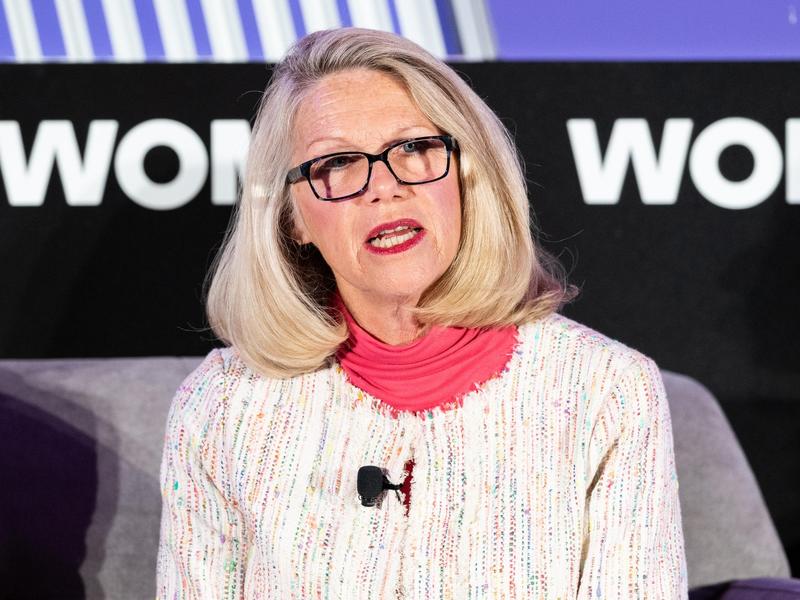
If the rest of 2023 is even remotely as wild as this week is shaping up to be, then we are in for a year as tumultuous as the last. Over the last year we saw the Supreme Court reverse the landmark 49-year-old Roe v. Wade decision, upending what had seemed to be settled law for half a century, and an FBI search of the immediate past president’s home. Then of course there was a set of midterm elections featuring something of an eyebrow raiser in the Senate and a total shocker in the House. The list could go on and on.
This year, the distinct possibility of former President Trump getting indicted in one or more of three jurisdictions on an array of possible offenses, and whether he will actually stay in the race for the 2024 Republican presidential nomination head the list. The answer to those questions reveal several more: Who and how many Republicans will challenge him if he does in fact run? If he backs out, who emerges as the front-runner(s)? Does Trump’s decision affect President Biden’s call on whether to seek a second term, and if he steps down what does the Democratic field look like?
But this week’s drama centers around House Republicans’ selection of a speaker. Does current Minority Leader Kevin McCarthy get over the top, winning the 218 votes needed (if all members are present and voting), or will Minority Whip Steve Scalise or another member assemble the support that eludes McCarthy? How many ballots will it require? And no matter who prevails, how long can that person hang on, and how many people will occupy the speaker’s office over the course of this year and next? Maybe the Architect of the Capitol should affix the speaker’s name over the H-232 door in the Capitol building with Velcro.
Today, McCarthy’s chances of moving to the top job appear to be considerably less than 50-50, as he faces strong resistance among a key group of House Republicans. The lack of an attractive alternative is about the only thing keeping his hopes alive. In fact, McCarthy’s willingness to go along with the rules changes demanded by insurgents underscores his plight. The new rules package is tantamount to signing an undated resignation letter and handing it out to political opponents.
Don’t assume that Scalise would be more palatable. The extremely conservative, anti-establishment band of political jihadists that form the opposition are not only anti-McCarthy, but seem determined to break away from any vestiges of normalcy or mainstream Republican orthodoxy over the last few decades. Anyone in the current leadership structure is by definition unacceptable to them.
It was more than a little ironic when Republican former Speaker Newt Gingrich took to Fox News Monday morning to defend McCarthy and promote his election to speaker, given that it was Gingrich’s coup 30 years ago that pushed out Republican Minority Leader Bob Michel. That move began an anti-establishment revolution, not just in the House but ultimately in the party as a whole, culminating in the election to the presidency of Donald Trump.
Keeping in mind that Republicans hold just 222 seats, a defection of more than four members would doom the nomination of McCarthy, Scalise, or anyone else, though any no-shows or “present” votes could reduce the denominator that helps determine the speaker of the House.
There has been some talk of a center-out coalition of 218 or more votes from both sides of the aisle, with the name of just-retired House Republican Fred Upton mentioned more than any other. Upton, a good friend of mine and a former Energy and Commerce Committee chair, is as capable, responsible, and decent as any member in decades. The House could hardly do better, but realistically it is hard to see—and not just because a non-member has never been elected speaker. Democrats are extremely unlikely to vote for a Republican under any set of circumstances (and vice versa). As a friend who has worked on and around the Hill for four decades noted to me this morning, a vote in favor of someone from the opposite party for speaker effectively amounts to a party switch. We all know the track record of party switchers in their first or second primary elections in the new party. Besides, would a substantial number of the hardcore revolutionaries among House Republicans be willing to pass over McCarthy or Scalise in favor of an even less conservative member?
Then again, should it come down to a fourth, fifth, or subsequent ballot, they might be looking for a different alternative. Think of someone currently backing McCarthy but perhaps with less baggage, like Rep. Tom Cole of Oklahoma, a heavyweight now in his sixth term, who is perceived as more of a pragmatist than a centrist.
Regardless, House Republicans may invite the criticism that they won’t be able to govern if they can’t even elect a speaker. Senators on both sides of the aisle may soon view the House GOP as better suited to the kiddie table, not real players to be taken seriously.
State houses may contribute to the drama as well. Keep an eye on the Florida Legislature when it convenes on March 7 (adjourning May 5). It’s expected to change the “resign to run” provision in state law that would force Gov. Ron DeSantis to step down from the governorship upon announcing a presidential bid. While Trump would rather DeSantis be forced to make a choice, Tallahassee insiders believe that there is no way Trump could win this fight. The Republican majorities in the state House and Senate are considerably more afraid of DeSantis than of Trump. But it is hard to see Trump disciplined enough to ignore it and the slap in the face that the move would constitute.
It will be fun to watch, as part of this second wild and crazy year in a row.
The article was originally published for the National Journal on January 2, 2023.








Subscribe Today
Our subscribers have first access to individual race pages for each House, Senate and Governors race, which will include race ratings (each race is rated on a seven-point scale) and a narrative analysis pertaining to that race.